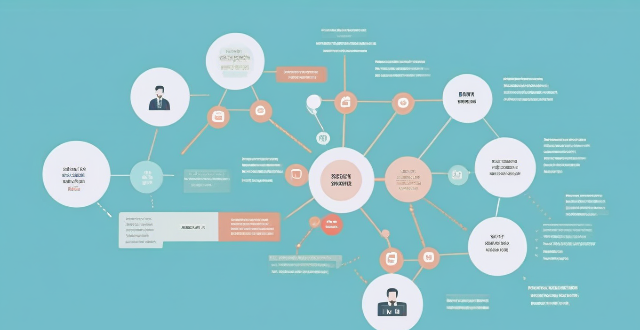Market Equity

What is the future outlook for private equity ?
Private equity (PE) is a dynamic sector of the financial industry that involves investing in or acquiring companies, typically with the aim of improving their operations and selling them at a profit within a few years. The future outlook for private equity is influenced by various factors such as economic conditions, technological advancements, regulatory changes, and market trends. Here's a detailed analysis of what the future might hold for private equity: Economic Influences: Global Economic Growth, Interest Rates, Market Volatility Technological Advancements: Digitization, Artificial Intelligence and Machine Learning, Blockchain Regulatory Changes: Stricter Regulations, Tax Laws Market Trends: ESG Investing, Diversification, Exit Strategies Industry Evolution: Consolidation, Secondary Markets, Direct Investments Challenges and Opportunities: Competition, Talent Retention, Innovation In conclusion, the future of private equity looks promising but not without its challenges. The industry is set to evolve with changing economic conditions, technological advancements, regulatory shifts, and market trends. PE firms that adapt and innovate will be well-positioned to thrive in this dynamic environment.

How does private equity differ from public equity ?
Private equity and public equity are two different types of investment vehicles that offer distinct characteristics, benefits, and risks. Private equity refers to investments in companies that are not publicly traded on stock exchanges, while public equity refers to investments in companies that are publicly traded on stock exchanges. Key differences between private equity and public equity include accessibility, liquidity, regulation, investment horizon, and returns. Private equity investments are typically only available to accredited investors, such as institutional investors, high net worth individuals, and family offices. Public equity investments are more accessible to a wider range of investors, as anyone can buy shares of publicly traded companies on stock exchanges. Private equity investments are generally illiquid, meaning it can be difficult to sell your stake in a company if you need to exit the investment. Public equity investments are highly liquid, as shares of publicly traded companies can be easily bought and sold on stock exchanges. Private equity firms are not subject to the same level of regulation as publicly traded companies. This allows them greater flexibility in managing their investments and making strategic decisions without the scrutiny of public markets. Publicly traded companies are subject to strict regulations and reporting requirements set by regulatory bodies such as the Securities and Exchange Commission (SEC). Private equity investments typically have a longer investment horizon than public equity investments. This is because private equity firms focus on long-term growth and value creation within the companies they invest in. Public equity investments can be held for shorter periods of time, as investors can easily buy and sell shares on stock exchanges based on market conditions and personal financial goals. Private equity investments often aim for higher returns than public equity investments, as they involve higher levels of risk and illiquidity. However, these returns are not guaranteed and depend on the success of the companies being invested in. Public equity investments may offer more stable returns over time, as publicly traded companies tend to be more established and have a proven track record of financial performance. In conclusion, private equity and public equity offer different advantages and disadvantages depending on an investor's goals, risk tolerance, and investment horizon. It is important for investors to carefully consider their investment objectives and risk profile before choosing between private equity and public equity investments.

How does a home equity loan work in relation to my mortgage ?
A home equity loan allows homeowners to borrow against the equity in their property, serving as a second mortgage without requiring refinancing. It offers advantages such as lower interest rates and potential tax deductions but also presents risks like foreclosure and additional debt. Understanding how it works in relation to your primary mortgage is crucial for making an informed financial decision.

How do private equity firms value companies ?
Private equity firms value companies using various methods, includingPrivate equity firms value companies using various methods, including, discounted cash flow ( These approaches help them assess the company's financial health, market position, growth potential, and risks to make informed investment decisions.

What are the benefits of investing in private equity ?
Investing in private equity offers higher potential returns, diversification benefits, active management and control, access to unique opportunities, tax efficiency, and a disciplined approach to investing. However, it also comes with risks such as illiquidity, high entry barriers, and the need for specialized knowledge. Proper due diligence and consideration of one's overall investment objectives and risk tolerance are essential before committing capital to private equity.

How do private equity firms make money ?
Private equity firms generate profits through various strategies, includingPrivate equity firms generate profits through various strategies, includingLBOs), growth capital including leveraged buyouts (LBOs), growth capital investments, and venture capital investments. LBOs involve acquiring companies with debt and equity financing to improve their value for a higher sale price or public offering. Growth capital investments provide funding to established companies with growth potential but not ready for an LBO or public offering. Venture capital investments target early-stage startups with high growth potential but limited track records. Private equity firms manage risk by diversifying across industries and geographies, conducting thorough due diligence, actively involving portfolio company management, and monitoring financial performance metrics. By balancing risk and reward, they can achieve consistent returns over time while minimizing losses from individual investments.

How much equity should I be prepared to give up for investment in my startup ?
When determining equity allocation for startup investment, consider theWhen determining equity allocation for startup investment, consider the type of investor, company value Finally, consider the company's goals and vision when deciding on equity allocation, as giving up too much equity can limit future options and affect control over decision-making.

What are the risks associated with private equity investments ?
Private equity investments are a type of investment where an investor puts money into a private company, typically with the expectation of high returns. While these investments can offer substantial rewards, they also come with significant risks such as illiquidity, lack of transparency, high volatility, management risk, exit strategy uncertainty, valuation challenges, economic cycles, and legal and regulatory changes. Proper research, diversification, and patience are key to navigating the challenges associated with private equity investments.

How does educational equity impact student success ?
Educational equity is crucial for student success. It ensures access to quality education, reduces socioeconomic disparities, and promotes diversity and inclusion. Educational equity positively impacts academic achievement, social and emotional development, career opportunities, and civic engagement. Achieving educational equity requires collective efforts from educators, policymakers, and community members.

What role do pharmaceutical companies play in promoting vaccine equity ?
Role of Pharmaceutical Companies in Promoting Vaccine Equity: - **Introduction**: Discusses the importance of vaccines and the challenge of vaccine equity. - **Development and Production of Vaccines**: Covers research, development, manufacturing, and quality control measures. - **Availability and Affordability of Vaccines**: Includes pricing strategies and partnerships with governments and NGOs. - **Improving Access to Vaccines**: Discusses global health initiatives and technology transfer/capacity building efforts. - **Conclusion**: Reinforces the critical role of pharmaceutical companies in promoting vaccine equity.

What are the challenges to achieving educational equity ?
Educational equity is a critical issue in modern society, but achieving this goal is not without its challenges. Some of the major obstacles that hinder the progress towards educational equity include limited resources, socioeconomic disparities, systemic racism and discrimination, and lack of parental involvement. It is essential for policymakers, educators, and communities to work together to develop strategies that promote equal access to quality education for all students.

How can vaccine equity be achieved globally ?
Vaccine equity is crucial for global health, but challenges like funding shortages and misinformation hinder progress. Increasing funding, improving infrastructure, promoting education, and encouraging international cooperation can help achieve vaccine equity globally.

What is private equity ?
Private equity (PE) is an investment strategy where funds pool capital from institutional investors to directly invest in companies. This involves buying out existing shareholders or providing growth capital, with the aim of improving operations and selling at a profit. Key features include long-term investments, active ownership, diverse strategies, and a clear exit strategy. Types of PE include leveraged buyouts, venture capital, growth equity, mezzanine financing, and secondaries. Private equity firms play roles in due diligence, deal structuring, operational improvement, financial management, and exit planning. Benefits of PE include economic growth, job creation, and operational expertise, while criticisms include high debt loads, short-term focus, and potential negative labor impacts.

What is the carbon trading market ?
The carbon trading market is a financial mechanism that allows for the trading of emissions reductions to meet greenhouse gas emission targets. It is based on cap-and-trade, where a limit is set on total emissions and those who reduce their emissions below the cap can sell their surplus allowances. Key components include carbon credits, emissions caps, trading mechanisms, verification and certification, and regulation and governance. Benefits include cost-effectiveness, flexibility, innovation incentives, and global collaboration. Challenges and criticisms include equity concerns, market inefficiencies, environmental integrity, and political will. The carbon trading market serves as a crucial tool in the fight against climate change but requires ongoing attention and improvement to maximize its effectiveness.

How does private equity affect corporate governance ?
Private equity (PE) plays a significant role in shaping the governance of companies. It can have both positive and negative impacts on corporate governance, depending on various factors such as the PE firm's strategy, the nature of the investment, and the target company's existing governance structure. This article will explore the ways in which private equity affects corporate governance. ### Positive Impacts of Private Equity on Corporate Governance - **Improved Decision-Making Processes**: Private equity firms often bring fresh perspectives and expertise to the decision-making processes within a company. They may introduce new management practices or technologies that enhance efficiency and productivity. This can lead to better strategic planning and more informed decisions being made by the board of directors. - **Greater Transparency and Accountability**: Private equity investors typically demand greater transparency and accountability from the companies they invest in. This can result in improved financial reporting, regular board meetings, and increased communication between management and shareholders. Such measures help to ensure that all stakeholders are kept informed about the company's performance and future plans. - **Increased Focus on Long-Term Value Creation**: Private equity firms generally have a long-term investment horizon, which means they are more likely to focus on creating value over the long term rather than pursuing short-term gains. This can lead to a greater emphasis on sustainable growth, innovation, and responsible business practices. ### Negative Impacts of Private Equity on Corporate Governance - **Potential Conflicts of Interest**: Private equity investors may have conflicts of interest with other stakeholders, such as employees, customers, or suppliers. For example, a PE firm might push for cost-cutting measures that negatively impact employee morale or customer satisfaction. These conflicts can undermine good governance practices and harm the company's reputation. - **Pressure for Short-Term Profits**: While some private equity firms focus on long-term value creation, others may prioritize short-term profits at the expense of long-term sustainability. This can lead to excessive risk-taking, aggressive financial engineering, or even fraudulent activities aimed at boosting short-term earnings. Such behaviors can ultimately damage the company's reputation and financial health. - **Lack of Diversity in Board Composition**: Private equity firms often control a majority of the seats on a company's board of directors. This can limit diversity in terms of gender, ethnicity, and professional background among board members. A lack of diversity can lead to groupthink and reduce the effectiveness of the board in providing independent oversight and guidance to management. In conclusion, private equity has both positive and negative effects on corporate governance. The key is for PE firms to balance their pursuit of profit with a commitment to ethical business practices and responsible stewardship of the companies they invest in. By doing so, they can help build stronger, more sustainable businesses that benefit all stakeholders.

What are some notable private equity firms ?
Private equity firms are investment companies that pool funds from various investors to acquire and manage private companies, typically investing in undervalued or distressed businesses, restructuring them, and selling them at a profit. Some of the most notable private equity firms include Blackstone Group, The Carlyle Group, Kohlberg Kravis Roberts & Co. (KKR), TPG Capital, and Warburg Pincus. These firms have diverse portfolios and investment strategies, with assets under management ranging from $600 billion to $79 billion as of 2022.

How does educational equity relate to social justice ?
Educational equity and social justice are interconnected concepts that aim to create a fair and just society. Educational equity involves providing equal opportunities for learning and addressing disparities in resources, funding, and support services between schools or communities. Social justice encompasses policies and practices that ensure everyone has equal rights, opportunities, and access to resources while eliminating discrimination based on various factors. The relationship between educational equity and social justice includes addressing systemic inequalities within the education system, providing access to quality education for all students, promoting diversity and inclusion, and empowering students to become agents of change in their communities. By achieving educational equity, we can work towards creating a more just and equitable society.

How do you identify potential investment opportunities through stock market analysis ?
The article outlines a step-by-step guide to identifying potential investment opportunities through stock market analysis. It begins with understanding the basics of the stock market and choosing between fundamental and technical analysis methods. The next step is conducting research on individual companies, including creating a watchlist, analyzing financial statements, evaluating management teams, and assessing industry trends. Technical analysis tools such as moving averages and RSI are then used to analyze price trends and patterns. Finally, setting up alerts and tracking performance helps in adjusting the portfolio based on new information or changing market conditions.

What role do teachers play in promoting educational equity ?
The article discusses the role of teachers in promoting educational equity, which is defined as providing equal opportunities for all students to succeed academically regardless of their background or circumstances. Teachers can contribute to achieving educational equity by creating an inclusive learning environment, adopting personalized learning approaches, collaborating with stakeholders, and advocating for equitable policies and practices. They must ensure that every student has access to quality education and is given the necessary support to achieve their full potential.

What is educational equity and why is it important ?
Educational equity is the principle that all students, regardless of their background or circumstances, should have access to high-quality educational opportunities. It involves providing equal resources, support, and services to ensure that every student can achieve their full potential. The importance of educational equity lies in promoting social justice, reducing achievement gaps, increasing student motivation, preparing students for future success, and promoting diversity and inclusion. By addressing disparities in education and promoting equal treatment for all students, we can help create a fair and just society where every individual has an equal opportunity to succeed.

What are the key factors to consider when analyzing the stock market ?
Analyzing the stock market involves considering economic indicators, company financials, industry trends, market sentiment, technical analysis, and risk management. Economic indicators provide insights into the overall health of the economy, while company financials assess the financial health of individual companies. Industry trends help understand the prospects of the industry in which a company operates. Market sentiment can impact stock prices, even if it doesn't necessarily reflect the underlying fundamentals of a company or the economy. Technical analysis involves studying past price patterns to predict future movements. Proper risk management is crucial when investing in the stock market, including diversification, stop-loss orders, position sizing, and evaluating the potential rewards against the risks involved in each trade.

What skills will be most valuable in the future job market ?
The future job market is rapidly evolving, driven byThe future job market is rapidly evolving, driven byization, and changing socie driven by technological advancements, globalization, and changing societal needs. As we look ahead, certain skills will become increasingly valuable to both individuals and organizations alike. Here are some of the most important skills that are likely to be in high demand in the coming years: critical thinking and problem-solving, digital literacy, adaptability and learning agility, communication and collaboration, leadership and management, ethical awareness and social responsibility. By focusing on developing these key areas, individuals can position themselves for success in the ever-evolving landscape of work.

How can parents support educational equity for their children ?
Educational equity is a fundamental principle that ensures all children, regardless of their backgrounds, have equal access to quality education. As parents, supporting educational equity can make a significant difference in your child's learning journey and the community at large. Here are some ways you can contribute: 1. Advocate for equal resources by engaging with school administration and supporting funding initiatives. 2. Foster inclusivity at home by educating yourself and your child about diversity and promoting empathy. 3. Provide equal opportunities at home by creating a learning environment and encouraging extracurricular activities. 4. Collaborate with other parents by building networks and working together on school projects. 5. Stay informed and up-to-date by reading educational literature and attending workshops, as well as using technology wisely to leverage online resources and monitor progress.

How do you analyze the performance of a specific industry within the stock market ?
Analyzing the performance of a specific industry within the stock market requires a comprehensive understanding of various factors that can impact the industry's growth and profitability. Key steps to follow include identifying the industry, studying its trends, analyzing the financial performance of key players, evaluating the competitive landscape, considering macroeconomic factors, using financial ratios and metrics, and considering industry-specific factors. By following these steps, you can gain a better understanding of the performance of a specific industry within the stock market and make informed investment decisions based on your analysis.

What is the average return on investment for private equity ?
Private equity (PE) investments can offer attractive returns, but these are influenced by several factors. The success of the companies in which PE firms invest, market conditions, investment strategy, and timing all play a role. Historically, PE has delivered average annualized returns of 12-15%, though these can be volatile. It's important for investors to understand the J-curve effect, fees, and the benefits of diversification when considering PE investments.

What is the typical structure of a private equity deal ?
The typical structure of a private equity deal involves several key components, including due diligence, investment structure, capital structure, governance and control, exit strategy, and legal agreements. The process begins with thorough due diligence to evaluate the target company's financial health, operational efficiency, market position, and growth potential. The investment structure defines how the PE firm will invest in the target company, while the capital structure determines how the target company will be financed after the PE firm's investment. Governance and control involve securing representation on the company's board of directors, gaining certain rights to veto major decisions, and bringing in new management or working closely with existing management to drive performance improvements. A successful private equity deal also requires a well-defined exit strategy for the PE firm to realize its investment return. Lastly, various legal agreements are put in place to govern the relationship between the PE firm and the target company.

What is the current state of the US stock market ?
The US stock market is currently experiencing a mix of positive and negative trends, including strong economic growth and technology sector performance, but also significant market volatility and trade tensions. Factors impacting the market include interest rates, global economic conditions, and geopolitical risks.

What are the best practices for pricing items in a second-hand market ?
When selling items in a second-hand market, it's essential to follow best practices for pricing to maximize profits and ensure a smooth transaction. Key tips include researching market value, considering the item's condition, setting a fair price, being open to negotiations, and updating the listing regularly. By following these guidelines, sellers can attract more potential buyers and increase their chances of making a successful sale.

What are the challenges and opportunities for developing countries in the carbon trading market ?
Challenges and opportunities for developing countries in the carbon trading market include lack of infrastructure, legal and regulatory hurdles, market access and information asymmetry, capacity building needs, economic growth and investment, technology transfer and innovation, environmental sustainability, policy influence and leadership.

How has the private equity industry evolved over time ?
The private equity (PE) industry has undergone significant changes since its inception, evolving from small and mid-sized business investments to larger companies and more complex transactions. The industry has diversified into various sub-sectors like venture capital and distressed investing, allowing firms to specialize in specific areas. Technological advancements have played a crucial role in shaping the PE industry, improving investment decision-making processes. Regulatory changes have also influenced the evolution of the industry, promoting transparency, fairness, and accountability. Looking ahead, the PE industry is likely to continue evolving as it adapts to changing market conditions, technological advancements, and regulatory environments.